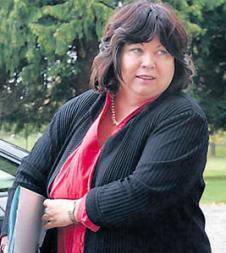|
Ireland: Nursing Home 'Deal' Looms
By Eilish O'Regan, Irish Independent
Ireland
November 19, 2007

Health Minister Mary Harney: Deal will ease financial burden.
Pensioners who avail of
subsidized nursing home care from next year must agree for the first time to allow the State to recoup the cost from their estates after they die.
Legislation is to be published in the next fortnight outlining the controversial new scheme. The Department of Health has confirmed it wants the legislation, which underpins the so-called Fair Deal scheme, in place by January.
However, it will have a serious impact on those who are willed the resident's assets after their death. For instance, a son or daughter who inherits a house, farm or business could find themselves having to pay several hundred thousand euros back to the State that they had not bargained for.
The scheme allows nursing home residents to hold onto their home and other assets while they live, and lets the State pick up most of their fees, whether they are in a private or public nursing home.
However, as part the "deal", the State can recoup the cost after they die by making a claim of up to 5pc for each year they were in the home. The maximum claim is 15pc.
Health Minister Mary Harney argued this would end the current system, whereby nursing home residents in private homes have to find around €1,000 a week in fees, and sell their home to pay for the care.
People who opt to pay their fees upfront will not have any claim on their estates made. And somebody who has no assets will continue to have their care fully paid for by the State.
It is understood there will be a clause in the new legislation which will prevent people with assets -- who are just about to go into a nursing home -- from getting around the deal.
It will be necessary to show that the assets were transferred to someone else years in advance of entering the nursing home.
Negotiate
The National Treatment Purchase Fund is to negotiate a price with nursing home owners who want to enter the scheme. Nursing home fees are currently around €1,000 a week.
One of the knock-on effects, however, of the changes is that it will end the current system, whereby somebody who is financially well off only has to pay €120 a week if they are in a State nursing home.
Health Minister Mary Harney said: "Under the new Nursing Home Support Scheme, people who require long-term residential care will contribute up to 80pc of their assessable income, whether for public or private nursing home care.
"Depending on the amount of a person's assessable income, there will also be a contribution of up to 5pc of a person's assets. It is payable on settlement of the person's estate."
The amount the State claws back will not be more than the cost of their care. However, the speed with which the legislation is set to be rushed through is already causing alarm.
Eamonn Timmins, of Age Action Ireland, said yesterday that when the scheme was first mooted, the minister promised an independent inspectorate of nursing homes and mandatory standards of care would be put in place.
Promise
He said the promise was that homes participating in the scheme would have to meet these conditions.
However, he pointed out that the independent inspectorate would not be up and running until well into next year -- and the standards homes must comply with have also yet to be
finalised.
He also said residents would be paying more for care in State nursing homes from next year even though they were not subject to any inspection yet.
More Information on World Health Issues
Copyright © Global Action on Aging
Terms of Use |
Privacy Policy | Contact
Us
|



